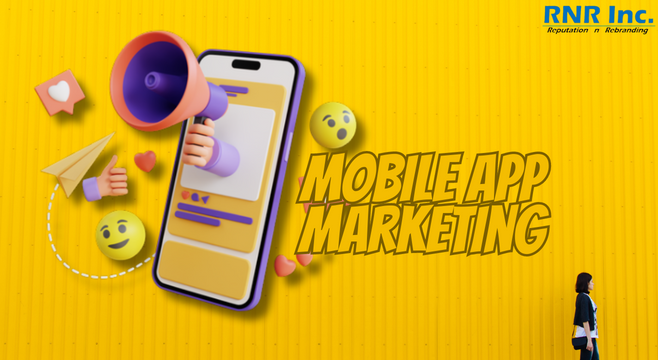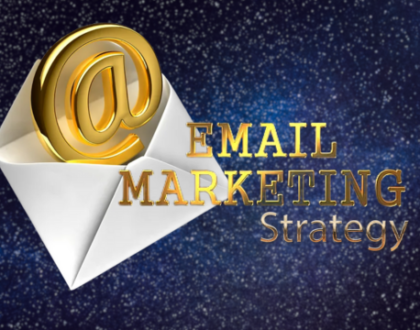Mastering Mobile App Marketing: Unlock the Potential of Your App

by RNRInc
Introduction:
In today’s digital landscape, mobile applications have become an integral part of our lives. With millions of apps available across various app stores, it’s crucial for app developers and businesses to adopt effective mobile app marketing strategies. In this comprehensive blog, we will explore the importance of mobile app marketing and provide valuable insights on how to maximize the visibility, downloads, and success of your app.
Understanding the Power of Mobile App Marketing
Mobile app marketing involves promoting and positioning your app in a way that attracts users and drives downloads. It encompasses various strategies, including app store optimization (ASO), user acquisition, retention campaigns, and engagement techniques. Implementing a comprehensive mobile app marketing plan is essential to stand out among the competition and achieve your app’s goals.
- Reaching the Mobile-First Audience: The majority of internet users now access the web through mobile devices. By developing and marketing a mobile app, you tap into a vast audience that prefers the convenience and accessibility of mobile applications. Mobile app marketing enables you to connect with this mobile-first audience, enhance user experiences, and establish a stronger brand presence.
- Improved Visibility and Discoverability: App stores are bustling marketplaces with millions of apps vying for attention. Effective mobile app marketing strategies, such as app store optimization (ASO), ensure that your app stands out from the competition. ASO techniques like keyword optimization, compelling descriptions, and captivating visuals boost your app’s visibility and improve its chances of being discovered by potential users.
- Enhanced User Engagement and Retention: Mobile apps offer unique opportunities for engaging users and driving long-term loyalty. Through push notifications, personalized experiences, and interactive features, you can keep users engaged and encourage them to return to your app repeatedly. Mobile app marketing focuses on optimizing user experiences, fostering meaningful interactions, and providing value to users, resulting in higher user retention rates.
- Monetization and Revenue Generation: A well-marketed mobile app can be a lucrative source of revenue. Whether through in-app purchases, subscriptions, or advertising, mobile apps offer multiple monetization options. With effective marketing strategies, you can increase app downloads, user engagement, and conversions, ultimately boosting your revenue potential.
- Data-Driven Insights: Mobile app marketing provides valuable data and insights into user behavior, preferences, and app performance. By analyzing app analytics, you can gain deep insights into user demographics, engagement patterns, and conversion metrics. This data allows you to make data-driven decisions, refine your marketing strategies, and optimize your app to better meet user needs.
- Competitive Advantage: In a competitive app market, effective marketing sets your app apart from the competition. By implementing targeted marketing campaigns, leveraging social media, and collaborating with influencers, you can generate buzz around your app and gain a competitive edge. A well-executed mobile app marketing strategy positions your app as a top choice among users, increasing downloads and market share.
- Brand Building and Recognition: A mobile app serves as an extension of your brand. By incorporating your brand identity, visual elements, and messaging into your app, you reinforce brand recognition and strengthen brand loyalty. Mobile app marketing not only promotes your app but also contributes to building a strong and memorable brand image.
App Store Optimization (ASO): The Foundation of Success
App Store Optimization (ASO) is the process of optimizing your app’s visibility and ranking within app stores. It involves strategic keyword research, compelling app descriptions, captivating screenshots, and appealing app icons. By leveraging ASO techniques, you can increase your app’s discoverability, attract organic traffic, and improve conversion rates.
User Acquisition: Reaching the Right Audience
User acquisition focuses on attracting new users to download and engage with your app. It involves a combination of organic and paid acquisition channels, such as social media advertising, influencer partnerships, content marketing, and app install campaigns. Understanding your target audience and selecting the most effective user acquisition channels will drive quality downloads and increase user engagement.
Retention and Engagement: Keeping Users Coming Back
Retaining app users and fostering engagement are crucial for long-term success. Effective retention strategies include personalized onboarding experiences, push notifications, in-app messaging, loyalty programs, and continuous updates. By providing a seamless and engaging user experience, you can increase user satisfaction, drive repeat app usage, and encourage positive app reviews.
Leveraging Social Media for App Promotion
Social media platforms offer immense potential for app promotion and user engagement. By creating engaging content, running targeted ad campaigns, and building a strong community, you can leverage social media to generate buzz around your app, drive downloads, and encourage user advocacy.
Influencer Marketing: Harnessing the Power of Influence
Influencer marketing has emerged as a powerful strategy to reach and engage with a wider audience. Collaborating with relevant influencers who align with your app’s niche can significantly boost your app’s visibility, credibility, and downloads. Leveraging the influence of trusted individuals can create a ripple effect, driving organic growth and increasing app awareness.
Analyzing and Optimizing Performance
Tracking and analyzing key app metrics is essential for optimizing your mobile app marketing efforts. By utilizing app analytics tools, you can gain insights into user behavior, identify areas for improvement, and refine your marketing strategies. Continuously monitoring performance metrics allows you to make data-driven decisions and enhance the overall user experience.



